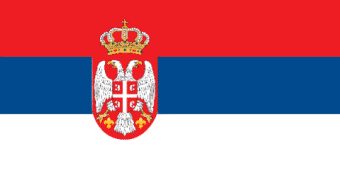

Venice Commission - Report on Bicameralism
www.venice.coe.int
Disclaimer: this information was gathered by the Secretariat of the Venice Commission on the basis of contributions by the members of the Venice Commission, and complemented with information available from various open sources (academic articles, legal blogs, official information web-sites etc.).
Every effort was made to provide accurate and up-to-date information. For further details please visit our site : https://www.venice.coe.int/
4.How many members are in the lower house?
140 deputies elected to four-year terms.
Unicameral, 28 members.
The National Assembly of Armenia has 107 seats,
Milli Majlis (Parliament) of the Republic of Azerbaijan consists of 125 deputies.
The National Assembly consists of 240 members elected for a four-year term
The Legislative Assembly is composed of 57 deputies
In the Croatian Parliament as a unicameral body (current official name is Hrvatski sabor) there are 151 members. The current constitutional and electoral arrangement (as of 2010) envisions the following:
There are 80 members, but only 56 are currently engaged.
There are (up to) 179 members of Parliament (the Folketing).
101 members.
200 representatives.
Currently consisting of 150 members
300, universally elected for a term of four years.
Since 2014, the Parliament has 199 members, instead of the previous 386, elected by Hungarian voters in a single-round ballot. The previous 176 single-member constituencies have been reduced to 106. Under the new system, each voter resident in Hungary can cast two votes, one for the individual constituency candidate and one for the national (party or nationality) lists. The individual candidate who receives the highest number of votes wins, while the votes cast for the national lists will be used to allocate seats according to a method of calculation that ensures proportional allocation of seats. The parties that obtain at least 5% of the votes cast directly on the national lists will be allocated seats. Hungarians living outside the country can only vote for party lists. In the Parliament elected in this way, there are 106 individual winners and 93 national list members.
As stipulated in Article 31 of the Constitution of the Republic of Iceland from 1944 with subsequent amendments, Althingi shall be composed of 63 members elected by the people by secret ballot on the basis of proportional representation for a term of four years.
The Knesset comprises of 120 members.
The National Assembly has 300 seats.
There are one hundred twenty (120) members elected by secret ballot on the basis of open lists.
Out of the 90 seats in the Supreme Council, 54 are elected by proportional representation in a single nationwide constituency, and 36 in single-seat districts.
The only house of the Latvian Parliament consists of 100 Members of Parliament (Article 5 of the Constitution).
The parliament (Landtag) consists of 25 members.
Unicameral Parliament (Seimas) of Lithuania consists of 141 members. Art. 55(1) of the Constitution of the Republic of Lithuania: “The Seimas shall consist of representatives of the Nation—141 Members of the Seimas, who shall be elected for a four-year term on the basis of universal, equal, and direct suffrage by secret ballot.”
The Chamber is made up of 60 seats.
The Parliament of Moldova is the supreme representative body of the Republic of Moldova, the only state legislative authority, being a unicameral structure composed of 101 elected MPs on lists, for a period of 4 years. (data added by me)
24 members.
According to the Art. 62 of the Constitution, The Assembly of the Republic of North Macedonia is composed of 120 to 140 Representatives. The Electoral Code regulates that 120 MPs are elected in six electoral units in the country and 3 MPs are elected in the three electoral units in the diaspora. So according to the Electoral Code 123 MPs can be elected, but whether the 3 MPs will be elected depends on obtained threshold. The three MPs from diaspora are elected if they obtain minimal votes that were needed for election of the MP in the electoral units in the country at the last parliamentary elections. Because this threshold was not fulfilled by any of the candidates in these three electoral units in the diaspora during the parliamentary elections held in 2016 and 2020, these three posts were not filled, so the Parliament from 2016 till now is consisted of 120 MPs.
The Parliament currently has 81 members, with each member elected to a four-year term.
79 seats.
The unicameral parliament has 169 members.
The number of congressmen is 130. The Congress of the Republic is elected for a period of five years through an electoral process organized in accordance with the law. (Article 90 of the Constitution).
Under constitutional terms, the Assembleia da República shall have a minimum of one hundred and eighty and a maximum of two hundred and thirty Members, as laid down by electoral law (artº 148 CRP). Currently, the Assembly of the Republic is composed of 230 Deputies.
As reported in question 1) A, the parliamentary assembly (called the Great and General Council) is unicameral and consists of sixty members.
250 seats
There are 150 members in the parliament (Art. 73 par. 1 of the Constitution). The number has not changed since the beginning. Occasionally, there are initiatives by some populist MPs to lower that number (the arguments put forward are mostly of economic nature), but they remain marginal. There was even one unsuccessful referendum to that effect in 2010.
349.
There are 600 members of parliament, elected through proportional representation from 87 electoral districts.
There are 450 members of the Verkhovna Rada of Ukraine (unicameral parliament).
 Albania
Albania
 Andorra
Andorra
 Armenia
Armenia
 Azerbaijan
Azerbaijan
 Bulgaria
Bulgaria
 Costa Rica
Costa Rica
 Croatia
Croatia
- 140 MPs elected in 10 electoral units within the country (10 units x 14 MPs) elected by proportional representation (D’Hondt),
- 3 MPs elected in electoral unit “the rest of the world”, that includes all Croatian citizens residing outside the Republic of Croatia, elected by proportional representation (D’Hondt),
- 8 MPs representatives of national minorities, out of which 3 MP Serbian minority, 1 Italian minority, 1 Czech and Slovak minority, 1 Hungarian minority, 1 ex-Yugoslav ethnic groups (Slovenes, Montenegro, Muslim, Macedonian) and 1 the other ethnic minorities.
 Cyprus
Cyprus
 Denmark
Denmark
 Estonia
Estonia
 Finland
Finland
 Georgia
Georgia
 Greece
Greece
 Hungary
Hungary
In addition to the party lists, nationalities can also run separate lists and obtain seats at preferential rates. Nationalities that set up a nationality list at the elections but do not win any preferential mandate, shall have a “nationality advocate” to represent them in the Parliament. The nationality advocate may speak in Parliament if the item on the agenda concerns the interests and rights of the nationalities but does not have the right to vote. However, he/she has the right to vote in the work of the committee representing the nationalities and may participate in the meetings of the standing committees and the legislative committee with the right to consult. He/she may address questions to the Government and to members of the Government, the Commissioner for Fundamental Rights, the President of the State Audit Office and the Prosecutor General on matters concerning the interests and rights of nationalities within their competence. The advocate shall enjoy the same immunity as members of Parliament.
 Iceland
Iceland
 Israel
Israel
 Korea, Republic
Korea, Republic
 Kosovo
Kosovo
 Kyrgyzstan
Kyrgyzstan
 Latvia
Latvia
 Liechtenstein
Liechtenstein
 Lithuania
Lithuania
 Luxembourg
Luxembourg
 Moldova
Moldova
 Monaco
Monaco
 North Macedonia
North Macedonia
 Montenegro
Montenegro
 Malta
Malta
 Norway
Norway
 Peru
Peru
 Portugal
Portugal
 San Marino
San Marino
 Serbia
Serbia
 Slovakia
Slovakia
 Sweden
Sweden
 Türkiye
Türkiye
 Ukraine
Ukraine